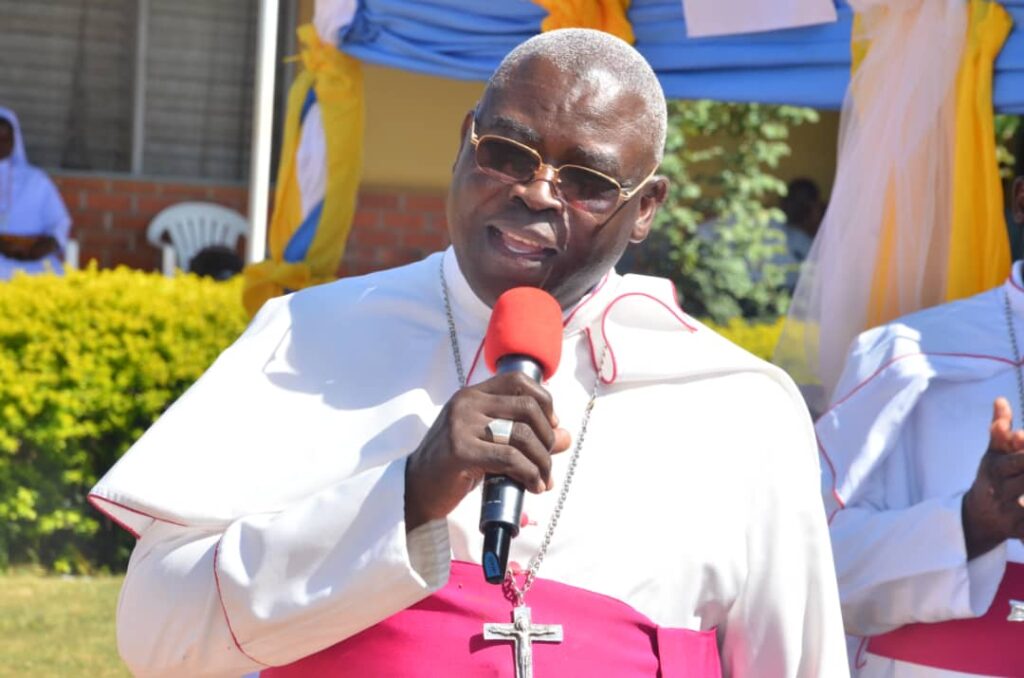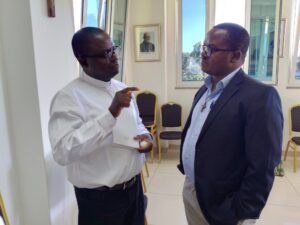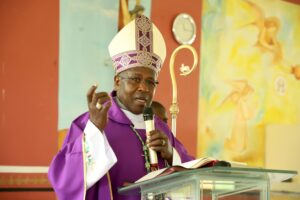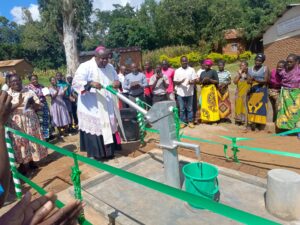UGANDA: Pastoral Care for Refugees and Migrants, Key Priority in Arua Diocese

Rt. Rev Sabino Ochan Odoki
Fr Isaac Ojok
Arua Catholic Diocese in North Western Uganda is continuing to offer pastoral care to refugees from the Republic of South Sudan and the Democratic Republic of Congo.
The South Sudanese refugees entered Uganda in 2013 and they settled in West Nile which is the ecclesiastical administration of Arua Diocese when war broke out in South Sudan between President Salvakiir and his then vice President Riek Macar.
Since their entry in the area, the refugees first sought refuge in churches and schools where they were accorded hospitality by the local communities.
While making a presentation on behalf of the Bishop of Arua Diocese Rt. Rev. Sabino Ochan Odoki at the continental workshop for journalists with focus on effective coverage and reporting on refugees and migrants in Kampala-Uganda on 12th July 2023 Rev Fr Kizito Oyii Mungu chairperson of the diocesan commission for refugees and migrants Arua Diocese disclosed that currently the diocese is offering spiritual and pastoral support, education, psycho-social support, health to enable them live comfortably.
As part of the response, Rt. Rev Sabino Ochan Odoki, the Ordinary of the diocese has created a Vicariate with the clear guidelines on how to give spiritual assistance to the refugees and to ensure that they are integrated among the host communities.
He disclosed that in the camps, the pastoral agents are continuing to administer Sacraments like Baptism, Confirmation, Matrimony to different categories of people like young people and the elders.
In his presentation, he said the diocese is offering pastoral care to the 1.5 million refugees that are spread in the 19 refugee settlement camps across the diocese.
Fr Oyii Mungu went on to reveal that in the diocese, not all refugees are living in the settlement camps but others have also been integrated in the communities to enable them start some income generating activities to strengthen their livelihoods among others.
According to the report, the presence of the refugees in Arua catholic diocese is mainly concentrated in the Eastern part of the diocese in the areas of Adjumani, Paluringa and other settlements although other refugees are in the Bidibidi refugee settlement camp.
In his presentation, Fr Oyii Mungu noted that so far, the diocese has received some Religious congregations to help offer pastoral care to the refugees giving examples of the, Comboni Missionaries (MCCJ), Society of Jesus (Jesuit), the Medical Mission Sisters, Comboni Sisters, the White Fathers, Missionary Sisters of Africa, Divine Word Missionaries, Missionaries of the Holy Spirit, the Little Daughters of St Joseph who have come to serve in departments of Education, health, pastoral especially catechesis.
Although there are few pastoral agents, he said the diocese is still open to receiving the missionary groups to increase pastoral agents who can offer pastoral care and other interventions.
He noted that in the diocese, there are 183 priests currently offering pastoral care to the people of God while 40 are Religious priests who belong to different Religious congregations.
According to the diocesan commission for Refugees and migrants in Arua catholic Diocese, the refugee settlements have 11 pastoral agents now serving refugees in the camps.
In an attempt to extend care to the refugees, the diocese is also faced with challenges like language barriers, poor places of worship, poor logistics for those working with refugees and the refugees themselves, difficulties in mobilization of financial resoucres, few pastoral agents, insufficient basic needs, constant mobility of the refugees back and forth particularly men, family crises especially for women and children, young girls.
The Congolese, South Sudanese and refugees from other countries being accommodated in Uganda is in line with the country’s Open-Door Policy on refugees that provides secure rights such as freedom of movement, access to employment, education and medical services.
Created in 1958, Arua Diocese is geographically located in North Western Uganda and it is covering 8 political districts of Arua, Maracha, Koboko, Terego, Yumbe, Obongi, Moyo, and Adjumani.
Its territorial demarcation is bordering South Sudan in North, Democratic Republic of Congo in the West and it is being commended for the struggle in dispensing the spiritual and pastoral care to refugees in their settlement camps.
End


